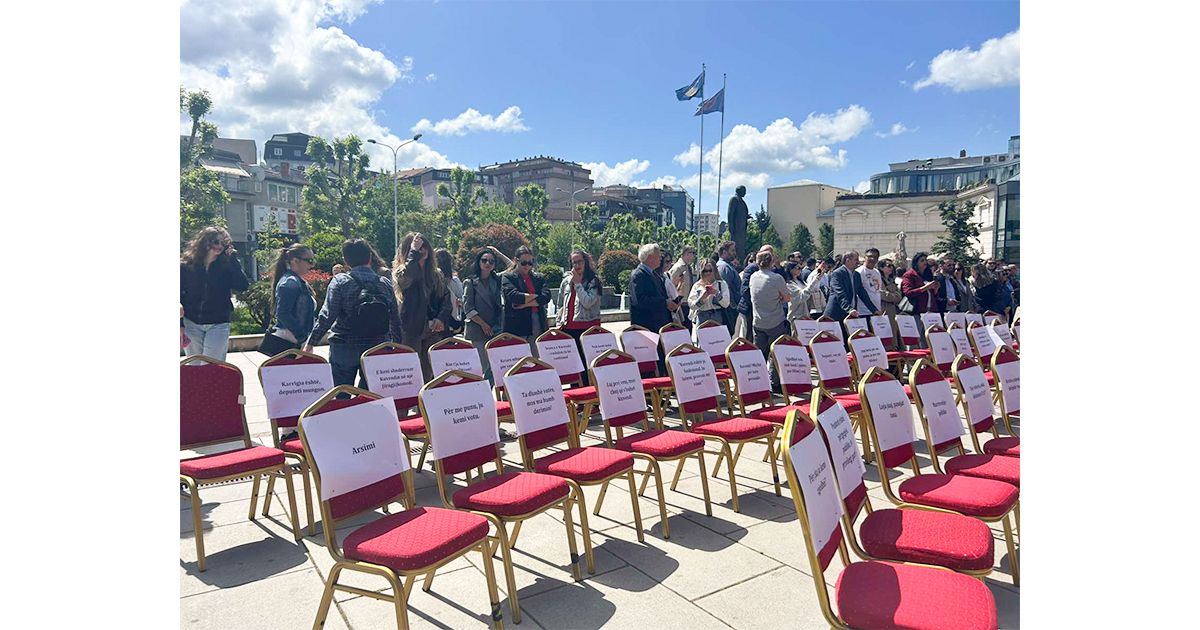On 31 May, persons with Muscular Dystrophy from throughout Kosovo gathered in Prizren. With support from the Ministry of Culture, Youth and Sport,OPMDK,a member of the Kosovo Women’s Network, made it possible for them celebrate the Week of Muscular Dystrophy together. This year, volunteers surrounded the fountain in the center of Prizren, with the message that the drinking fountain is inaccessible to persons with muscular dystrophy. To make this message clearer, they offered water from the fountain through a pipe to persons with muscular dystrophy who never before had the opportunity to drink water from this popular fountain.
Esra Kerveshi, a little girl from Mitrovica, recited a couple poems, demonstrating that children with muscular dystrophy can be equally knowledgeable as other kids.
As a symbol of the importance to freedom and solidarity, OPMDK members freed from a cage several birds and allowed them to fly into the sky.
“With these activities and messages, we are here today raising our voices to the respective institutions, and we demand their support, which is mandatory according to the existing laws,” said Antigona Shestan from OPMDK.
In the end, OPMDK organized a march where persons with muscular dystrophy together with supporters from Kosovo Security Force (KSF), non-government organizations, sport clubs and volunteers marched together through the city.


